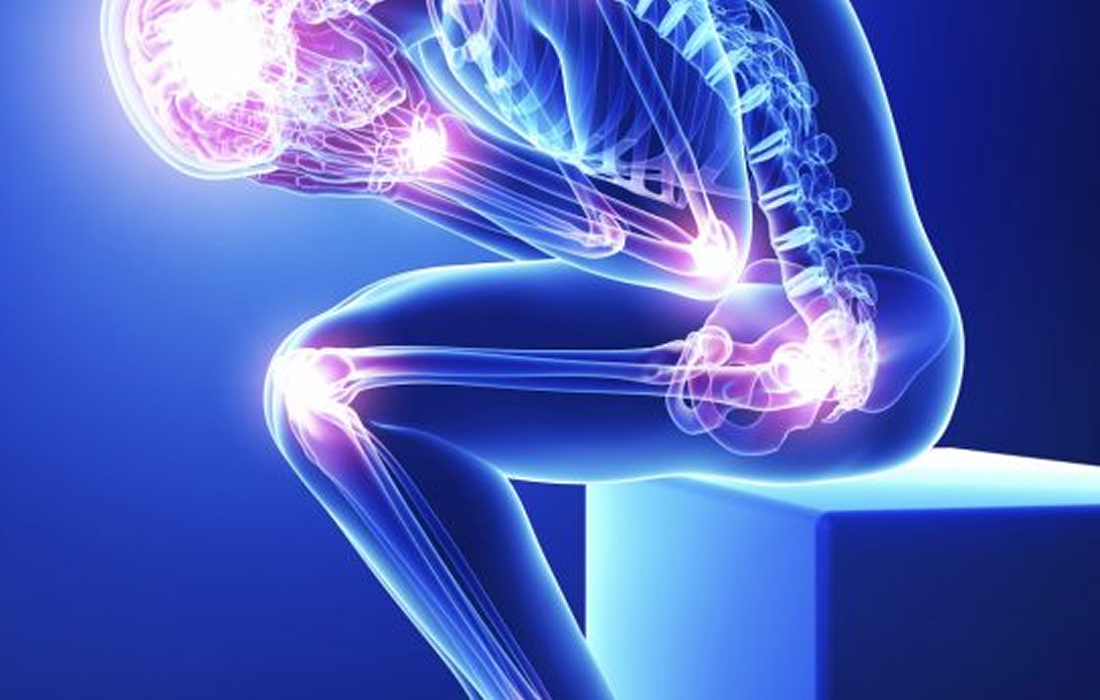Regenerative Medicine News and General Information
Does chronic pain increase the risk of neurological diseases?
Pain starts in receptor nerve cells found beneath the skin and in organs throughout the body. When you are sick, injured, or have other types of problems, these receptor cells send messages along nerve pathways to the spinal cord, which then carries the message to the brain. Pain medicine reduces or blocks these messages before they reach the brain.
Pain can be anything from a slightly bothersome, such as a mild headache, to something excruciating and emergent, such as the chest pain that accompanies a heart attack, or pain of kidney stones. Pain can be acute, meaning new, subacute, lasting for a few weeks or months, and chronic, when it lasts for more than 3 months.
Chronic pain has been linked to numerous physical and mental conditions and contributes to high healthcare costs and lost productivity. A limited number of studies estimate that the prevalence of chronic pain ranges from 11% to 40%.
In 2016, an estimated 20.4% of U.S. adults had chronic pain and 8.0% of U.S. adults had high-impact chronic pain. Both were more prevalent among adults living in poverty, adults with less than a high school education, and adults with public health insurance.
A study by researchers at the Chongqing Medical University in China, published in the journal of Regional Anesthesia & Pain Medicine, found patients who reported widespread pain had an increased incidence of dementia and stroke. They found this increased risk to be independent of facets such as age, health, or sociodemographic factors.
Some studies have found that patients with chronic widespread pain have an increased risk of developing cardiovascular disease as well as increased risk of death from it. Also, evidence suggests that they have increased incidence of different types of cancer and reduced cancer survival.
The researchers pulled data from the Framingham Heart Study (FHS). This is a large cohort study that started in 1948, with 5,209 white men and women between the ages of 30 and 62 years from the town Framingham, Massachusetts. The purpose of the study was to understand heart disease better. Now studying its third generation of participants, the FHS has encompassed more than 15,000 participants. For their work, the Chongqing Medical University researchers looked at about 2,464 participants of the Framingham Offspring Study Cohort. Of the participants 347 reported experiencing widespread pain.
They found that the participants had:
- 43% higher risk for all-cause dementia.
- 47% higher risk of Alzheimer’s disease.
- 29% higher risk of stroke.
The researchers hypothesized that the results could relate to lifestyle factors associated with experiencing chronic pain. For example, people who have chronic pain might not feel well enough to exercise regularly or shop for the groceries they need for a nutritious diet.
They also theorize that widespread pain could directly compete for resources in the brain that handle cognitive processing, and that the chronic stressful exposures are involved in quick cognitive decline via acknowledged cortisol-based pathways.
Finally, they hypothesized that widespread pain could be a preclinical phase of all-cause dementia and Alzheimer’s disease.
The observational nature of the study prevents the researchers from establishing the underlying mechanisms behind the increased risk.
Dr. Vernon Williams, the founding director of the Center for Sports Neurology and Pain Medicine at Cedars-Sinai Kerlan-Jobe Institute in Los Angeles, CA, told Medical News Today: “What this is telling us is that, hopefully, as we improve pain management, we reduce the risk of having cognitive dysfunction. We reduce the risk of people having strokes.”
As we can see from the results of the study, more questions need to be addressed in order to know the real association and mechanisms between pain and neurological conditions. But based on the results of the study we can at least see that there is an association that requires further study.
Source link: https://www.medicalnewstoday.com/articles/does-chronic-pain-raise-the-risk-of-dementia-alzheimers-or-stroke
Source link: https://www.hopkinsmedicine.org/health/conditions-and-diseases/chronic-pain
Source link: https://www.cdc.gov/mmwr/volumes/67/wr/mm6736a2.htm

